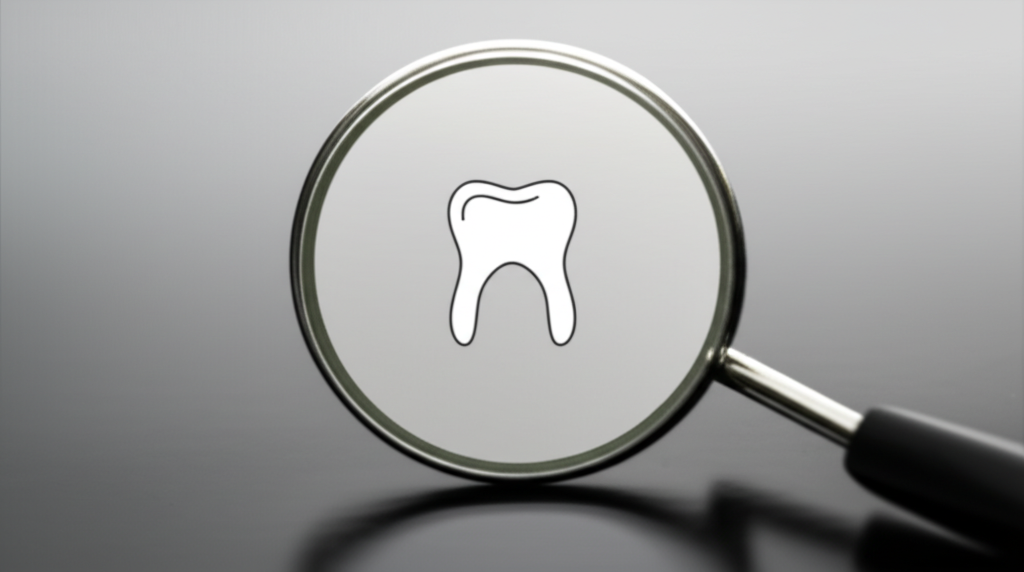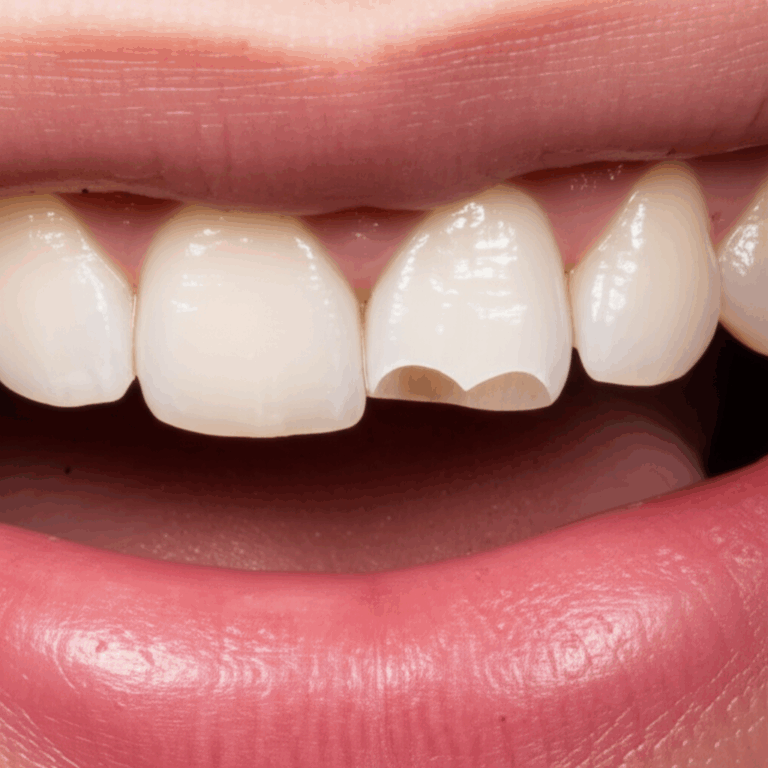
How to Find Complaints Against Dentists: A Step-by-Step Guide to Verifying Professional Conduct
Ever left a dental appointment feeling unsure—maybe with more questions than answers—and wondered, “Is it just me, or have other patients had trouble with this dentist?” You’re not alone. Every year, lots of people want to know if a dentist has a good record or if any real complaints were made about them. It’s totally normal to want to feel safe before letting someone take care of your health. In this guide, we’ll show you everything you should know about checking a dentist’s background for complaints or problems, and what to do if you find something wrong.
In This Article
What We’ll Cover:
- Why Should You Check for Dental Complaints?
- Where to Find Official Disciplinary Records
- How to Supplement Your Search With Unofficial Sources
- Types of Dental Complaints: What Do They Mean?
- How to Interpret What You Find
- What To Do If You Need To File a Complaint
- Choosing a Dentist With Confidence
- The Key Takeaways—Your Rights as a Patient
Why Should You Check for Dental Complaints?
Let’s answer the worry most people have but rarely say out loud: “Can I trust this dentist?” Trust is super important in any healthcare, and dental care is no different. Checking for complaints or problems isn’t about trying to “catch” your dentist doing bad stuff. It’s just making sure you’re being smart, careful, and keeping yourself safe.
Why does it matter?
Official Sources: Where to Find Disciplinary Records
Here is where to look for the most trusted, real sources for checking a dentist’s background.
1. State Dental Board Websites: Your Main Stop
Every state has a group that gives dentists their licenses. The [State Dental Board] is your first and best stop.
How to Find Your State’s Dental Board Website:
- Search “Your State dental board license lookup” (like, “California dental board license lookup”).
- On the website, you can check if a dentist’s license is good, see if any complaints or actions have been made public, and look at any decisions they made.
License Check and Complaint Search:
- Put in the dentist’s name or license number in the search tool.
- Look for words like “disciplinary action,” “public warning,” “probation,” or “license taken away.”
- Some boards list dates and short explanations of any cases that were finished.
What Board Actions Mean:
- Reprimand: A formal warning for small problems.
- Probation: Dentist can keep working, but with rules to follow.
- Suspension: Dentist can’t work for a while.
- Revocation: Completely loses the license—big or repeated problems.
Note: Not every complaint will show up. Working investigations are usually private.
2. National Practitioner Data Bank (NPDB): A Big Record
The NPDB is a big federal list where major problems and paid malpractice cases are kept.
- What does NPDB have? Malpractice payouts and serious actions like suspensions or losing licenses, for all health workers.
- Public Access? Regular people can’t search it. Most state boards use it, so your state board website is still your best choice.
3. State Medical Boards (Sometimes Oversee Dentists)
- In some states, the medical board also watches dentists.
- Try searching the state’s medical board database if you can’t find dental-specific results.
4. Attorney General’s Office (Consumer Help)
If you think there’s fraud, insurance abuse, or a bigger legal problem, check with your state’s attorney general, usually in the Consumer Protection Division.
- They keep track of problems like insurance tricks or bad business practices.
- Search “[Your State] attorney general dental complaints” for steps.
How to Supplement Your Search With Unofficial Sources
Official channels will tell you about big problems, but not every issue shows up there. Lots of people look at reviews and forums to get the full story—just remember to not believe everything you read!
1. Online Review Websites
Places like Healthgrades, Yelp, Google Reviews, and Zocdoc let patients write about their visits. Just look up your dentist’s name and city.
- Look for Patterns: Reviews might talk about staff, wait times, or billing. But watch for regular complaints about pain, rushed visits, or billing tricks.
- Is It Just One, or a Lot? A single angry review doesn’t mean danger, but lots of similar stories could be a real problem.
- Misbehavior vs. Unhappiness: Remember, “They didn’t give a refund” and “They fixed the wrong tooth” are very different.
2. Better Business Bureau (BBB)
- See if complaints were made about business practices, billing, or other issues.
- The BBB doesn’t handle real medical problems, but if you see a lot of the same business complaints, take note.
3. Professional Associations
- The American Dental Association (ADA) has ethics rules and a complaint process, but big issues go back to the state boards.
- Some state associations have help lines and can handle lower-level problems about dentist behavior.
Types of Dental Complaints: What Do They Mean?
It’s easy to get lost in fancy lawyer or medical words. Here’s a simple list of the kind of dental complaints:
Clinical Negligence/Malpractice
- What is it? Bad care that causes harm—like missing a problem, doing a poor job on a filling, or causing injury.
- Examples: Pulling the wrong tooth, missing signs of cancer, causing nerve damage.
Professional Misconduct
- What is it? Doing something against rules or laws—using drugs at work, crossing boundaries, faking records, or sharing patient info.
- Examples: Being drunk at work, doing things with patients they shouldn’t, making fake insurance bills.
Billing and Insurance Complaints
- What is it? Arguments about charges, insurance, being billed for things not done, or charging too much for things not needed.
- Examples: Charging for veneers when you just got a cleaning, or billing both you and the insurance.
Patient Safety Violations
- What is it? Not keeping things clean, not sterilizing tools, using stuff past its date, or leaving patients without care.
- Examples: Using needles again, leaving someone in pain with no help.
Customer Service or Communication Problems
- What is it? Problems with rude staff, mixed-up fees, not explaining things, or feeling rushed.
- Examples: Dentist didn’t explain choices; office lost your insurance info.
Only the first four normally end up as board cases. Communication and service issues usually show up just in reviews.
How to Interpret What You Find
You’ve done the work—now you have to figure out what it means.
1. Small Problems vs. Big Warnings
- Was it just something like a late bill, fixed right away? Or does this dentist have a lot of big issues over time?
- Small problems can happen to anyone; serious, repeating problems are more worrying.
2. How Serious Was the Board’s Action?
- Low: Fines, short probation, or warnings could just mean paperwork mistakes.
- High: Long suspensions, several lawsuits, or losing the license? That’s a big warning.
3. When and How Often Did It Happen?
- One mistake a long time ago (that was fixed) isn’t the same as several recent ones.
- If problems were labeled “unfounded” or “dismissed,” try to read the details, but know that not every case is perfect.
4. Limits of Public Records
- Not everything is public. New investigations, simple complaints, or private agreements might not show up.
What To Do If You Need To File a Complaint
If you had a real bad or dangerous experience, you have options. Here’s how:
1. Write Down Everything
- Note dates, times, and details. Keep emails, texts, bills, and pictures if you have them.
2. Report to the State Dental Board
- Most boards have online forms. Say what happened and attach anything that helps your case.
- Be clear and give details. “My crown broke after one week and the dentist refused to fix it” is stronger than “bad work.”
3. Talk to a Dental Malpractice Lawyer
- If you got badly hurt, lost money, or had big trouble, find a lawyer who knows dental cases.
- Many give free first meetings; search for your local bar association for help.
4. Call Your Insurance Company
- If you think you were charged for something you didn’t get, call your insurance or use their fraud number.
- Big cases of fraud might become police matters.
5. Reach Out to Dental Groups (ADA, State Associations)
- For rule-breaking or problems that aren’t injuries, use the ADA or your state group. They might send serious problems to the board, but can help with fairness and standards too.
Choosing a Dentist With Confidence
No search is perfect, but a little effort really helps. Here’s how to pick a dentist you really trust:
Ask for References:
Don’t be shy. Good dentists are happy to give you references, or show off happy reviews.
Check Licenses and Specialties:
Check licenses and any extra training at the dental board. Extra study in things like prosthodontics means the dentist works hard to stay sharp.
Consult Before You Decide:
Book a consult and ask questions. How does the dentist answer? Do they listen? Explain things in simple words? Go with your gut—if anything feels off, keep looking.
Trust Your Feeling:
A good patient-dentist relationship feels right. If you’re uneasy after searching or visiting, that’s reason enough to search again.
Example Scenario: How to Use This Guide
Let’s say Anna needs a crown, and she’s looking for a dentist. She checks reviews: a few note long waits, but nothing serious. She searches the state board and sees the dentist’s license is active—no big problems. She notices the practice works with a well-known crown and bridge lab, showing they use good, modern materials.
She schedules a first visit to talk about options. The dentist is open, explains everything, and mentions their digital dental lab means faster, better crowns.
She feels listened to and safe—just what you want.
Need a Refresher? Here’s a Quick Summary Table
| Step | What to Do | Why It Matters |
|---|---|---|
| Search State Dental Board | Verify dentist’s license, check for disciplinary records, understand severity | Source of truth for complaints that led to formal investigation |
| Supplement With Reviews | Look for patient experience patterns, spot communication or billing issues | Can reveal “soft” warning signs or broader satisfaction levels |
| Distinguish Complaint Types | Is it clinical, ethical, billing, or safety-related? | Helps you assess urgency and seriousness |
| Weigh Severity and History | Check how old the complaint is and if there’s a pattern of issues | Not all complaints signal ongoing danger or incompetence |
| File If Needed | Gather documents, file with board, consider legal/insurance action as appropriate | Enables actionable recourse, protects other patients |
Your Healthy Takeaway
Let’s sum up the big points:
- Be Proactive: Checking your dentist is smart, never weird.
- Know the Sources: The state dental board is your top stop. Add reviews and pro group info for a bigger picture.
- Read With Care: Not every bad review means trouble; search for real, repeated problems in official records.
- Take Action if Needed: If you have a serious issue, write it down and use the formal complaint systems. You have every right to safe, honest care.
- Pick Wisely: Find a dentist with a clean record whose care feels honest and caring. Use respected dental labs—for example, a top zirconia lab—for the best work.
Always remember, you are the main person on your dental team. When you ask questions and search for answers, you’re making your own health and safety stronger.
Frequently Asked Questions
1. Are all complaints sent to the dental board?
No—only those claiming rule-breaking, malpractice, or breaking safety or law. Most complaints about bad service or billing may not be taken officially.
2. What if I find no complaint records at all?
That’s usually good, but it doesn’t mean perfect care. Still check reviews and judge with your own feeling.
3. How do I find a dentist who cares about quality?
Besides checking records, pick dentists who explain clearly, offer up-to-date materials from trusted dental ceramics labs, and answer your questions. Good communication means good care.
4. What if I want to check dentists outside the U.S.?
Every country has different rules, but most have a public dental group or board you can ask. Some, like a china dental lab, follow strict worldwide rules—also a good sign.
Final Words
Checking a dentist’s background for complaints doesn’t mean you expect problems. It just shows you care—about your health, money, and peace of mind. You can’t beat doing your own homework and picking a dentist you can rely on. And if you ever need it, your state dental board or local dental society is there for help.
Take care of your smile, stay in control, and don’t be afraid to be your own best friend in the dental chair!








